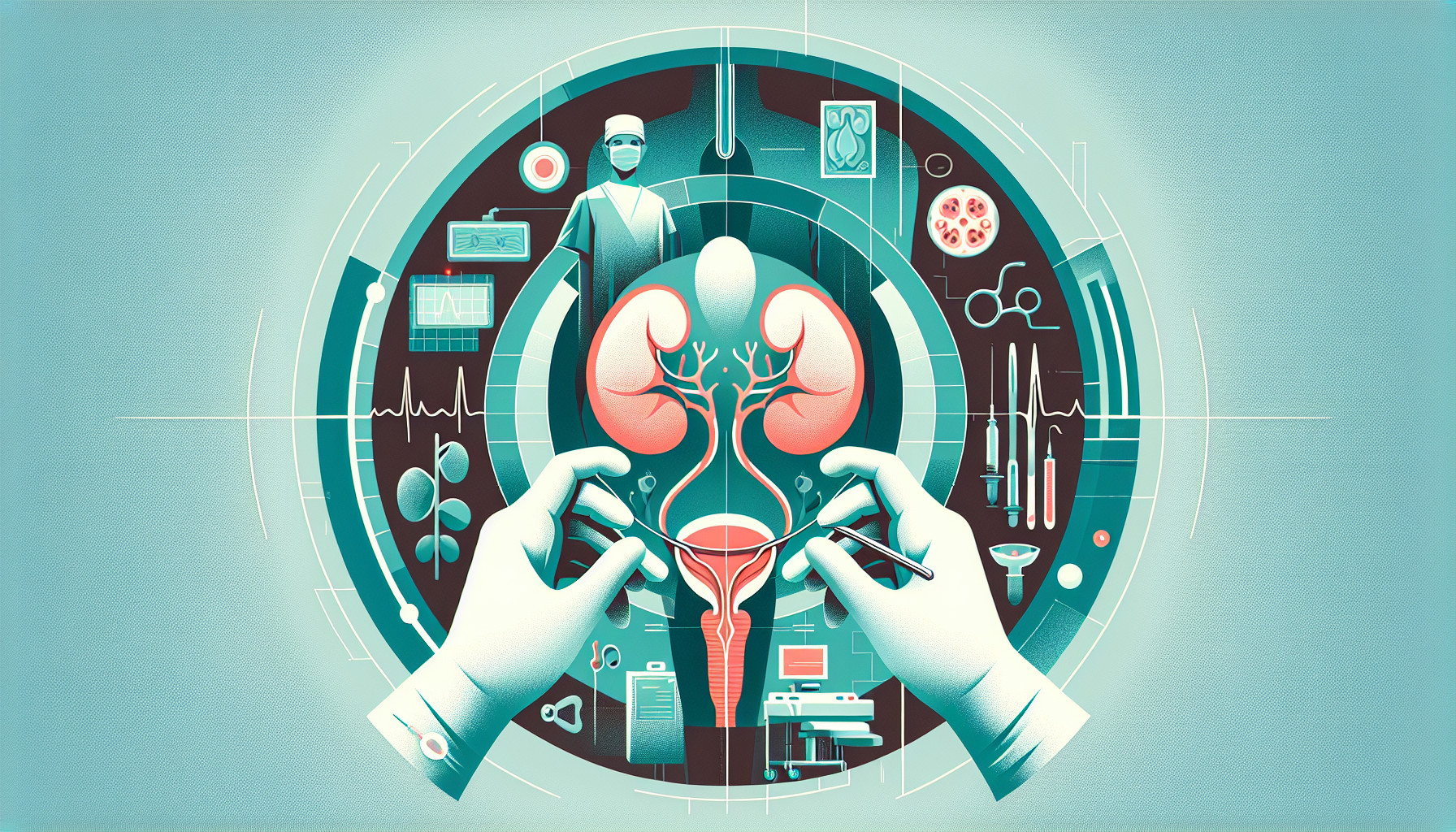Our Summary
The research paper focuses on comparing two surgical techniques for treating children with neurogenic bladder, a condition where the patient cannot control their bladder due to a brain, spinal cord or nerve problem. The two techniques are the intraperitoneal and extraperitoneal bladder augmentation.
In plain English, the intraperitoneal method involves surgery within the space that contains the abdominal organs, while the extraperitoneal method involves surgery outside of this space. The researchers wanted to find out if one method resulted in less bladder ruptures and other complications than the other. They looked at medical records of patients who had these operations between 2009 and 2021.
The results showed that there was not a significant difference in complications between the two methods. Only one patient, who had the intraperitoneal procedure, experienced a bladder rupture. Other complications, such as needing to be admitted to the Intensive Care Unit, needing further abdominal surgery, or having issues with a device used to treat brain conditions (VP shunt), did not significantly differ between the two groups.
In conclusion, the research suggests that neither technique is superior to the other in terms of complications. However, the researchers suggest that larger studies are required due to the low number of adverse events in this study.
FAQs
- What are the two surgical techniques for treating children with neurogenic bladder discussed in the research paper?
- Did the study find a significant difference in complications between the intraperitoneal and extraperitoneal bladder augmentation techniques?
- What are some of the complications that were considered in the comparison of the two surgical techniques?
Doctor’s Tip
A helpful tip that a doctor might tell a patient about bladder surgery is to follow post-operative care instructions carefully. This may include taking prescribed medications, avoiding strenuous activities, and attending follow-up appointments. It’s important to communicate any unusual symptoms or concerns to your healthcare provider promptly to ensure a smooth recovery process.
Suitable For
Patients who are typically recommended bladder surgery are those with neurogenic bladder, a condition that affects the ability to control bladder function due to neurological issues. In this case, the study focused on children with neurogenic bladder who may require bladder augmentation surgery to improve bladder function. This surgery is often recommended when other treatments have not been successful in managing the condition.
It is important for patients with neurogenic bladder to consult with their healthcare provider to determine if bladder surgery is the best course of action for their specific situation. The decision to undergo bladder surgery should be made after a thorough evaluation of the patient’s medical history, symptoms, and overall health.
Timeline
Before bladder surgery, a patient will typically undergo a series of tests and consultations with their healthcare provider to determine the best course of treatment. This may include imaging tests, urodynamic testing, and discussions about the risks and benefits of surgery.
After bladder surgery, the patient will likely experience some pain and discomfort, which can be managed with pain medication. They will need to follow specific instructions for caring for their incision site and may need to avoid certain activities for a period of time. Depending on the type of surgery, the patient may also need to use a catheter for a period of time to help drain urine from the bladder.
Overall, the recovery process can vary depending on the individual and the type of surgery performed. It is important for patients to follow their healthcare provider’s instructions closely to ensure a smooth recovery and minimize the risk of complications.
What to Ask Your Doctor
- What are the potential risks and complications associated with bladder surgery?
- How long is the recovery process after bladder surgery?
- What type of anesthesia will be used during the surgery?
- How long will I need to stay in the hospital after the surgery?
- Will I need to make any lifestyle changes after the surgery?
- What is the success rate of the surgery for my specific condition?
- Are there any alternative treatments to bladder surgery that I should consider?
- How many times have you performed this type of surgery, and what is your success rate?
- What are the long-term effects or potential complications of bladder surgery?
- Are there any specific precautions or steps I should take after the surgery to ensure proper healing?
Reference
Authors: Tran WT, Boxley PJ, Wilcox DT, Vemulakonda VM, Wood D, Rove KO. Journal: J Pediatr Urol. 2023 Apr;19(2):192.e1-192.e8. doi: 10.1016/j.jpurol.2022.12.003. Epub 2022 Dec 12. PMID: 36585277
